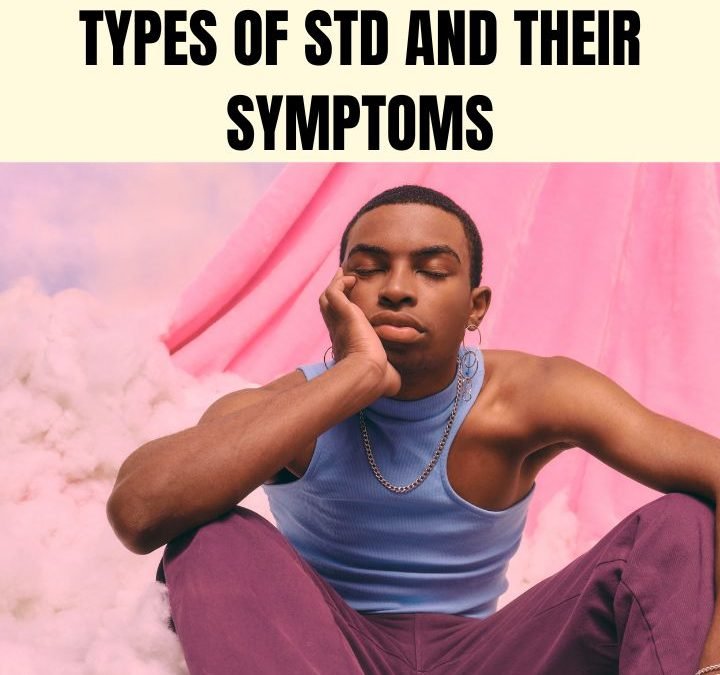Sexually transmitted diseases (STDs) are infections that spread through sexual contact. They can affect people of all ages, genders, and sexual orientations. While the subject of STDs may carry a stigma, it’s crucial to discuss these infections openly and honestly to promote awareness, prevention, and early detection. In this comprehensive guide, we will delve into various types of STDs, their symptoms, and why it’s crucial to seek prompt medical attention. If you are facing any problem regarding STD issues, You must go for a STD Test immediately.
Importance of STD Awareness
Before delving into the specific types of STDs and their symptoms, it’s essential to understand why STD awareness is crucial. By being informed about the risks, prevention methods, and symptoms of STDs, individuals can make informed decisions about their sexual health. Furthermore, early detection and treatment are key in managing and preventing the spread of these infections.
Common Types of STDs
- Chlamydia:
- Symptoms: Chlamydia often presents with symptoms like painful urination, abdominal pain, and abnormal vaginal discharge. However, many individuals with chlamydia may not display any symptoms, making regular testing crucial.
- Gonorrhea:
- Symptoms: Symptoms of gonorrhea may include painful urination, abnormal genital discharge, and pelvic inflammatory disease (PID) in women. Like chlamydia, some people with gonorrhea may be asymptomatic.
- Syphilis:
- Symptoms: Syphilis typically progresses through stages, with symptoms ranging from painless sores (chancre) to skin rashes, fever, and swollen lymph nodes. Left untreated, it can lead to severe health complications, including damage to the heart and nervous system.
- Herpes (HSV-1 and HSV-2):
- Symptoms: Herpes outbreaks are characterized by painful sores or blisters around the genital or oral areas. The virus can also be asymptomatic between outbreaks.
- HIV/AIDS:
- Symptoms: Early HIV infection may mimic flu-like symptoms, while advanced HIV (AIDS) can result in a weakened immune system, leading to severe illnesses. HIV is a lifelong condition but can be managed with antiretroviral therapy.
- Human Papillomavirus (HPV):
- Symptoms: HPV often presents with genital warts, but some strains can lead to various cancers, including cervical, anal, and throat cancer. Regular Pap smears and HPV vaccination can help prevent complications.
- Hepatitis B and C:
- Symptoms: Hepatitis B and C can lead to liver damage and are often asymptomatic in the early stages. Symptoms may include fatigue, jaundice, and abdominal pain.
- Trichomoniasis:
- Symptoms: This parasitic infection can cause itching, burning, and unusual discharge in women and discomfort in men. Symptoms can range from mild to severe.
Less Common STDs
While the above-listed STDs are relatively common, there are other, less frequent infections individuals should be aware of:
- Mycoplasma genitalium:
- Symptoms: This emerging pathogen can cause urethritis in men and women, leading to discomfort and pain during urination. It is often asymptomatic.
- Lymphogranuloma venereum (LGV):
- Symptoms: LGV is caused by certain strains of chlamydia and can result in severe genital and rectal swelling, pain, and discharge. It’s relatively rare but can lead to complications if left untreated.
- Granuloma inguinale:
- Symptoms: This rare bacterial infection causes genital sores and ulcers, which can be painless and may heal slowly. It primarily affects individuals in tropical and subtropical regions.
- Donovanosis:
- Symptoms: Donovanosis, also known as granuloma inguinale, leads to the formation of painless ulcers in the genital and anal areas. It is rare but can cause extensive tissue damage if not treated.
Importance of Safe Sex and Prevention
Preventing the spread of STDs is essential for public health. Here are some key prevention strategies:
- Condom Use: Consistent and correct condom use during sexual activity can significantly reduce the risk of STD transmission.
- Vaccination: Vaccines are available to protect against some STDs, such as HPV and hepatitis B. Discuss vaccination options with your healthcare provider.
- Regular Testing: Routine STD testing is essential, especially if you are sexually active with multiple partners. Early detection allows for timely treatment and reduces the risk of complications.
- Communication: Open and honest communication with sexual partners about sexual history and STD status is vital. This can help both parties make informed decisions about sexual health.
Seeking Medical Attention
If you suspect you have an STD or are experiencing symptoms, it is crucial to seek medical attention promptly. Early diagnosis and treatment can prevent complications and reduce the risk of transmission. Do not hesitate to contact a healthcare provider or visit a sexual health clinic for testing and advice.
Understanding the various types of STDs and their symptoms is essential for maintaining good sexual health. By raising awareness, promoting prevention, and seeking medical attention when needed, we can work towards reducing the prevalence of these infections and protecting ourselves and our partners. Remember that regular testing, safe sex practices, and open communication are key to maintaining a healthy sexual life. Stay informed, stay safe.

